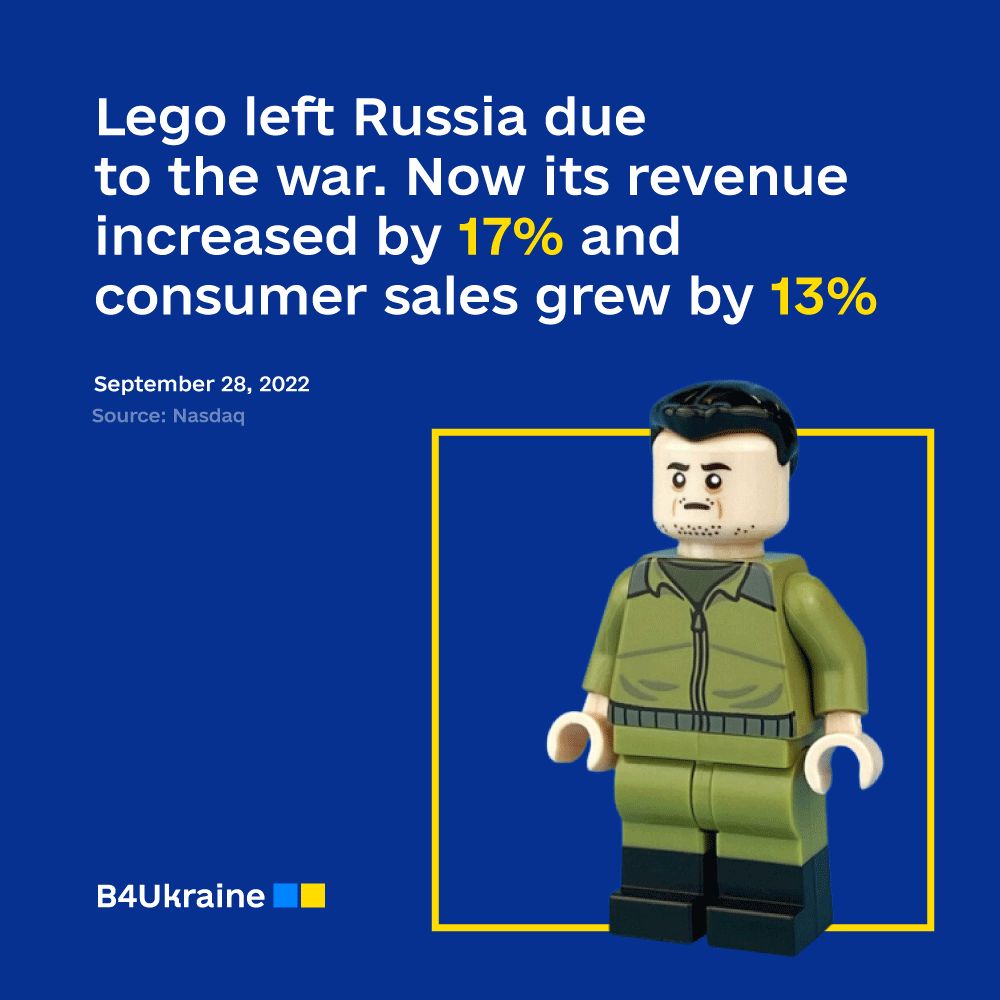
We are currently seven months into Russia’s war on Ukraine, and still, three-quarters of top-earning multinationals remain in Russia not wanting to lose their share of the large Russian market and the revenue it brings. However, as more companies are leaving the market, their cases prove that an efficient business approach will not only help to reduce temporary losses from exiting Russia but also will allow to increase the revenue. Danish toy maker Lego is the latest example.
Lego left Russia in July 2022 due to the war in Ukraine, even though it meant that it had to close 81 independent shops there. Its revenue in Russia amounted to more than $250 million last year, according to the KSE Institute data.
Recently Lego reported its six-months-results for 2022, and it appears that despite leaving the Russian market Lego posted double-digit sales growth in the first half of the year, driven by new store openings and robust demand for its colourful plastic bricks despite rising costs and inflation hitting consumers.
The company even outpaced the toy industry in all major markets during the first half of the year with the company’s revenue increasing by 17% to 27 billion Danish crowns ($3.48 billion). Lego increased consumer sales by 13% in the six-month period compared to a 1% growth in the global toy market. Operating profit for the period was steady from last year at 7.9 billion crowns. The Danish company opened 66 new stores in the six-month period, of which 43 were in China, bringing the total number of Lego branded stores to 833 worldwide.
This is not a single case proving that losing the Russian market doesn’t doom the company to unbearable losses. After exiting the Russian market, French bank Societe Generale took a loss of €3.3 billion. But the bank’s capital didn’t take significant capital impact and the group’s strategic developments were not handicapped by the decision, according to CEO Frederic Oudea. Societe Generale even managed to outperform its rivals although it had one of the biggest exposures to the Russian market.
Another example is McDonald’s. For the fast food chain, exiting the Russian market helped to improve the overall operating margin even though the Russian market was one of the company’s largest international markets.
All of these cases prove that leaving the Russian market is not only possible but feasible. Losses multinationals are afraid of may be minimal or even covered by gains in other markets.
Meanwhile, staying in Russia, especially now during the war mobilization, which obliges companies to assist with conscripting soldiers, means that the company is only going to get more and more involved in the destructive war Russia wages in Ukraine.
The B4Ukraine coalition calls on companies to take a cue from the companies that have quite painlessly pulled out from Russia and to fully exit the country, relocate production sites, and stop trade with Russia and Russian entities altogether to deprive its war machine of economic and financial resources.